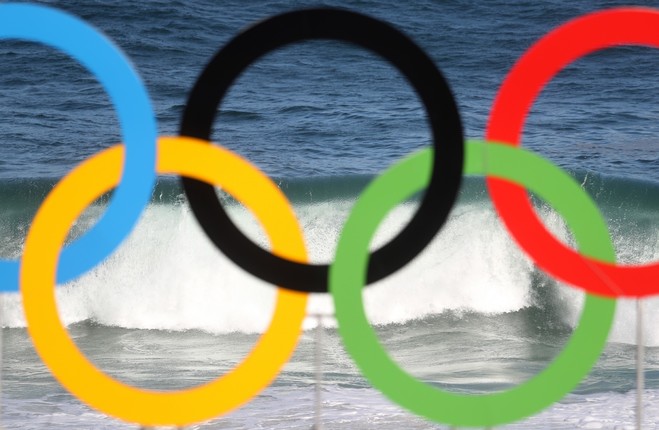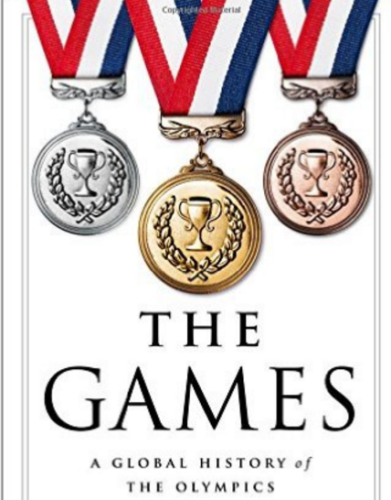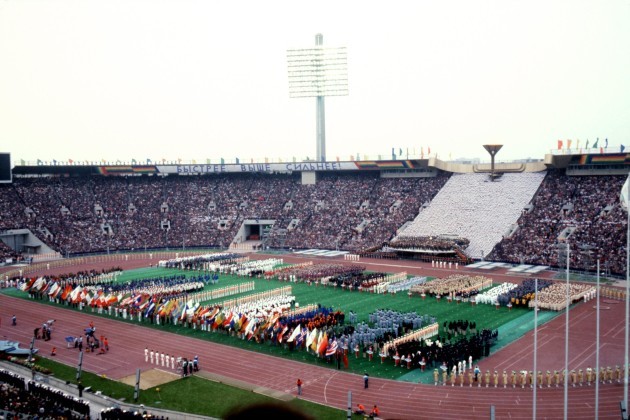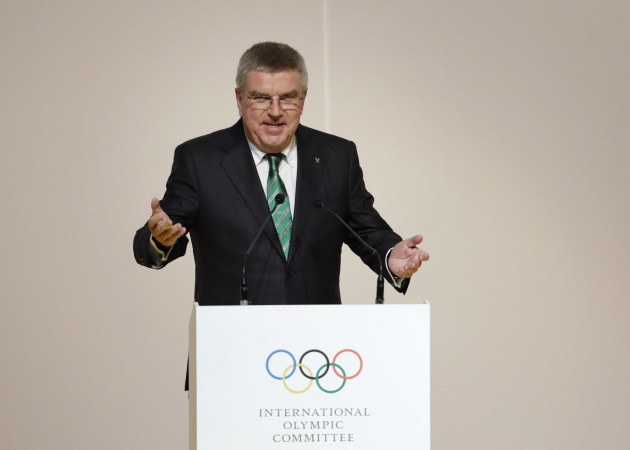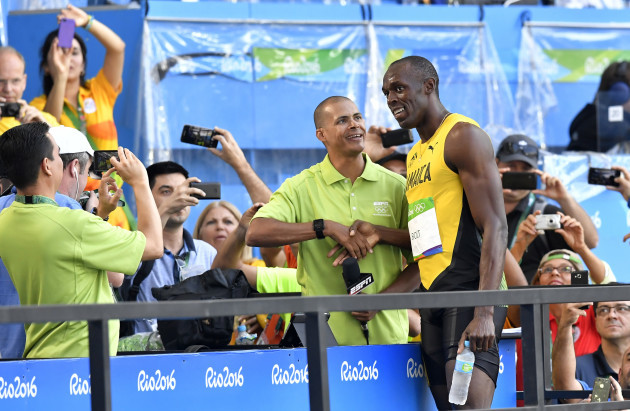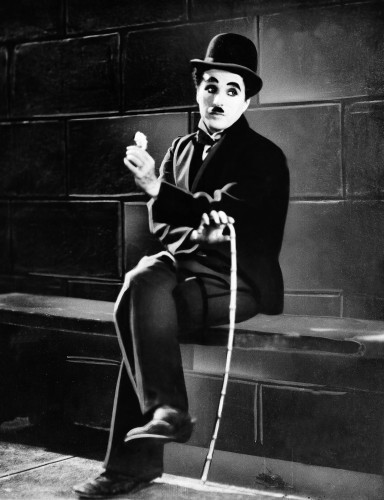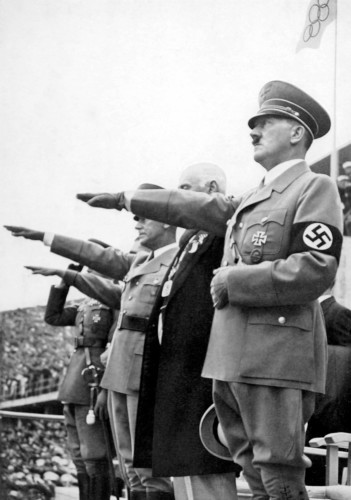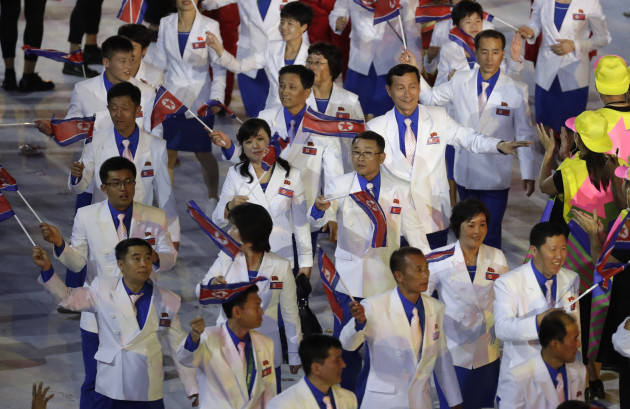BOOKS RECALLING THE history of the Olympics can sometimes be tedious affairs, essentially re-telling the results and star athletes of past Games in a rather basic, dull fashion, with a tendency to gloss over some of the more unsavoury elements of the event’s history.
However, in The Games: A Global History of the Olympics, author, journalist and academic David Goldblatt is able to delve deeper and examine some of the murkier elements of the event’s past in the way no ‘official’ re-telling ever could.
In just over 400 pages, Goldblatt manages to provide a comprehensive look at the Games’ history. The book does not shy away from the event’s problematic past encompassing racism, anti-Semistism, misogyny and of course, doping, the latter of which has been occurring in some form essentially since the modern Games’ inception in 1896, though it was only in the 1930s that the International Olympic Committee (IOC) really became interested in examining the issue.
Women and minorities were at first completely excluded from the Olympics, and it took several decades for anything approaching equality to be realised.
The book is full of interesting anecdotes that often paint a damning portrait of the organisers and the general culture of the time — for instance, when the USA’s William DeHart Hubbard became the first African-American to win a gold medal at the 1924 Olympics (in the long jump), his success was deliberately omitted from reports in the mainstream American press.
Much of the above is a far cry from the ideals on which the establishment of the Modern Games were based. Founder of the Olympics, Pierre de Coubertin, wanted to create an event where politics was irrelevant, and which would promote peace and goodwill between all countries. Unfortunately, it was never a realistic aim, and instead, the Olympics have become a mirror into society and a reflection of various global political sentiments for well over a century now, as Goldblatt eloquently illustrates in his latest book.
The author recently spoke to The42 about the arduous task of writing a comprehensive account of the good, the bad and the ugly from the earliest incarnations of the Olympics right up until the present Games in Rio.
What prompted you to write the book?
I’d already written a book on global football, so I was in the groove of global history through the lens of sport. Football covers a lot of territory, but there are also areas that it leaves unexplored.
For example, the Cold War, which while being a part of football history, is actually a kind of a minor strand, because the United States, until recently, hasn’t taken (football) too seriously. Whereas the Olympics, from the early 1950s through to the 1980s, is structured very much around the Cold War.
Another reason is that I just wrote a book called How to watch the Olympics in 2012 with Johnny Acton, which was a kind of how to watch it on the TV guide for 22 sports, which allowed me to do a whole bunch of reading on other sports that I hadn’t really engaged with.
Unlike the usual dreadful official Olympic guides, we thought we’d write one that would actually have a bit of cultural history with the cheating and the fighting and all of that. That opened up a lot of stuff that I thought was interesting sociologically and politically.
I taught a course on the history of sociology of the Olympics in the United States a couple of times. So by the time you put all those together, it sort of makes sense to write a global history of the Olympics.
The competition was rather thin. Allen Guttmann wrote a perfectly respectable if rather dull slim volume that was published in the 1980s and updated in the early 2000s. And then there’s the official history from David Miller, which for an official history, is not actually too bad, given who his clients were. But essentially, dull and over-cautious and insufficiently attentive to the politics.
Academics in the last 10-15 years have done a gigantic amount of work that didn’t exist before. There are three really good academic essays on the LA Olympic Village. As with a lot of academic work, it’s not very readable, but there are absolute gems (in there), brilliant work that’s been done.
As a kind of synthetic historian, I couldn’t possibly do all this myself from archival-based research unless I devoted 40 years of my life to it. You stand on the shoulders of other books. I realised that a treasure trove of work had been done, which was still incomplete.
But to be honest, and with no disrespect to anybody, it’s work that about three people are going to read, as it’s buried in some unspeakable journal of sociology. I couldn’t have written the book without drawing on all of that work that’s been done. But knowing it was there was a kind of an incentive to go and do it.
If I wanted another motivation, it’s that the IOC trades on its history. The accumulated cultural, capital, status political autonomy and authority that it has acquired.
But if you read their official history and their website, you think this is outrageous, you people are getting away with intellectual murder. You don’t acknowledge your past, you don’t write it and don’t acknowledge the real nature of it. You continue to talk rubbish about ancient Greece and political autonomy and so forth.
It’s like, let’s just put this on the page and we can have a conversation about what the real meaning of the IOC and Olympism is.
So there were lots of motivations (to write the book).
Knowing a lot about the Olympics coming into undertaking this project, what surprised you during your research?
Reading up about the workers’ sports movement… ‘Surprising’ is not really the word. I thought it remarkable how it’s been completely written out of the history of sport. In the interwar era in particular, how incredibly powerful and significant it was. In the 1920s, it really offered a serious alternative ideologically and institutionally to the IOC.
The Frankfurt 1925 Workers’ Olympics really blew me away — 250,000 people showed up. You think, how many people showed up at the other Olympics? It was a whole different way of thinking, a whole other kind of culture that aped in many ways the Olympic format, but infused it with a completely different meaning. Even Vienna in 1931 where they’re doing the downfall of the tower of capital with 30,000 people performing, I was thinking ‘wow, that’s pretty interesting’.
The depths of misogyny, anti-Semitism and racism ingrained in the first 30 or 40 years of the IOC’s existence while not surprising, when you read the letters they’re exchanging to each other, they’re talking about women and Jews, it’s like — wow, this is what anti-Semitism really looks like. But my cynicism levels are high enough that I obviously wasn’t really surprised.
I hadn’t done a history of doping and I didn’t do any original work in particular here. I relied on Tom Hunt’s Drug Games, which is an absolute gem. About 2,000 copies have probably been sold, it’s published by the University of Texas press. If you want to know what’s been going on for the last 100 years, institutionally, politically, pharmacologically and sportingly, bam — there it is.
I didn’t realise until I read that and I was surprised that the Moscow Games were declared “the first drug-free Olympics” by the IOC on the basis that Moscow reported to them that there were no dodgy samples.
Then this heroic West German doctor took a bunch of the samples away, did his own tests on them, and reckoned about 20% of all medals should have been stripped. So the bare-facedness of it was pretty shocking.
People are talking about the IOC and widespread doping at the Olympics at the moment. In a lot of the coverage, it comes across as if it’s a relatively new phenomenon and that the Olympic Games used to be idyllic, noble and dignified, whereas your book highlights that that wasn’t really the case at all.
When you set up and purport to have a celebration of universal humanity and your line is that it’s a display of manly virtue, for which the reward is the polite applause of women, you know you’re off to a super-politicised and bad start.
I don’t think this writes off the project that sport can be a force for internationalism or positive, progressive political and social change. But the idea that the IOC and Olympism is the kind of moral height and moral authority — they have kind of manoeuvred themselves into that position and been sort of accorded it by others — that’s why it’s so important to write history.
Is the IOC’s reputation and behaviour now at an all-time low, or is it the case that it’s not really that different from what was going on before — it’s just more high-profile and amplified by greater media coverage?
It’s interesting, they never take polls on this matter. This is a question lots of people ask me and one asks oneself. I’m sort of guessing and given the incapacity of us all to predict political outcomes or feelings, I’m slightly reticent. People keep watching it. That’s the bit of data that we can look at.
What I would say is that I believe this time around that the nature of the conversation in the global media discourse has been shifted.
The contribution of the various global anti-Olympic movements, particularly in Brazil, building on work that has come before and a couple of dozen academic, activist types who were writing and putting this stuff out has forced change in the conversation about, not merely the Rio Olympic Games, but the Games themselves.
I’m watching BBC Sport and Clare Balding is having to acknowledge, there in the shiny Olympic Park, the favelas. There is a sense that there is another world there, that it hasn’t gone right and that we shouldn’t really do this in the same way again, with Guanabara Bay, filth etc.
So the conversation has changed. NBC has to acknowledge that. The balance between (the criticism and) pretty good defence has been there for the last 20 years in Olympic reporting in the world of op-ed in the run up to the Games and I think the balance is now with the critics. I find very few, even in the sports pages, attempts to defend the Olympic model in any kind of plausible way.
The possibility of redemption through genius is offered, but beyond that, the ideological plausibility of the Olympic movement is looking pretty thin at the moment. I don’t know what the public will make of it over time, but certainly in the micro bubble world of elite debate, I would say things have changed and that has bled into the presentation of the Games in the mainstream.
Could you ever envisage a moment where the Olympics Games completely loses its credibility? If, hypothetically speaking, an athlete as big as Usain Bolt or Michael Phelps fails a drugs test? Or is it just too big for that to happen?
Usain Bolt is pitching it pretty high, if that happened, because he’s carrying certainly the sport of athletics. I think before it comes to the issue of the credibility of the public, it’s about what do the mayors of the world think? If somebody has to pay up, who’s going to stage it?
For the Winter Games in 2022, we’re down to two bidders, three for 2020, there are only two serious bidders for 2024. When you’re down to one, then you’re really in trouble. The six cities where the public has been given the opportunity to express their preference in the last five or six years, they have made it unerringly clear – ‘no way Jose’.
Oslo, St Moritz, Hamburg, Boston, all cities capable of hosting either the winter or summer Games and the public is just saying absolutely not. The politicians are saying absolutely not, apart from the people who backed the bid. I just think, there’s the problem.
What’s the most significant moment in the history of the Games in terms of their development into the kind of lucrative, corporate global celebration that they have become today?
1932 and 1936 are really key. There are lots of turning points and lots of moments, but in terms of it becoming a global media spectacular consciously staged to that end rather than a neo-Hellenic cult of the athletic gentlemen, which is still pretty much what they are (up until the early 1930s) — though Amsterdam is borderline.
But once you get to Los Angeles in 1932 and Berlin in 1936, although ideologically different, both make massive use of the mass media in a way that nobody has done before and consciously stage the event, be it an introduction of a torch relay in Berlin or the three podiums debuts with flags, anthems and all of that — the super photogenic, made-for-media moments, that is Los Angeles.
Los Angeles also brings celebrity to the Games. You’ve had a bit of that before, but you’ve now got the Marx brothers, Mary Pickford, Douglas Fairbanks Jr, Charlie Chaplin and Laurel and Hardy broadcasting to the world ‘Come to the Olympics’. We’re in different territory here — we’re not talking about a bunch of stuff with the aristocrats. We’re talking (legendary Hollywood producer) Louis B Mayer of MGM (Metro-Goldwyn-Mayer studios) being on the organising committee.
The first thing the LA organising committee does when it gets the Games is set up a press department. Most folks (who organised previous Olympics) didn’t know what a press department was before that.
Everybody knows the Berlin story. If you’ve got the money of a large, rich nation and serious ideology to sell, don’t the Olympics work for you? But they learned much of what they did at LA ’32. The general secretary and the chair of the organising committee in Berlin were taking feverish notes, taking diagrams and plans and photographs. There are other moments, but (1932 is) the one I would really go with.
There are some parallels to Russia in 2016 in the Olympics’ history with the possibility of other countries being excluded for their perceived ignominious behaviour — the Soviet Union in the 1950s and Nazi Germany in the 1930s — but generally speaking, the powers that be have traditionally tended to ultimately allow these countries to compete despite their dubious morals and ideologies.
In fairness to the IOC, if you’re going to be a universal organisation, you want everyone to be there, even if you don’t like them, as a measure of global, international tolerance. To give the IOC its dues, North Korea have shown up at the Olympic Games since 1992, which is a better record than most international organisations can manage, and I don’t think that is to be sneered at.
So this gets you into all sorts of problems in all sorts of ways. But the Russian case, I think, really is different.
Nobody’s been banned. The only time the IOC have seriously banned (countries) before is South Africa and Rhodesia for obvious reasons.
They’ve not invited people before. After the first and the second World War, the defeated powers were not invited, but that decision was left to the organising committees, the IOC didn’t actually ban anyone. And in that sort of world of gentlemanly sport, the Germans knew it would be understood that you weren’t going to make that approach.
So in some ways, the Russian thing is new territory, because nobody has been absolutely caught red-handed. We know that this went on during the Cold War as state-organised doping programmes in the Eastern Bloc, and also informal networks of almost equal capacity in the US and elsewhere — it wasn’t just going on in Communist countries.
But nobody was actually brought to book. There was no WADA (World Anti-Doping Agency). There were no whistleblowers. There wasn’t an investigation like this. But also, you didn’t have an IOC which had, with Agenda 2020, nailed its colours so systematically to protecting the integrity of sport in terms of governance and doping. This is an absolutely gigantic challenge to that. So I think this is slightly new territory.
But we speak as if the IOC was a coherent body. Most of these decisions I would say are really being made among a handful of people present with loads of power. The power is seriously concentrated at the top of the IOC. Like really, Princess Anne? She’s part of the debate. All of these dudes are all part-timers.
To win the IOC Presidency basically, you must have a lot of friends. Let’s just say that. It’s as with most internal elite struggles, it’s not specific to the IOC, it’s true of who gets professorships in sociology departments, it’s the same stuff at work.
One thing that stands out in the book is the treatment at the Olympics of women and minorities etc, and how long it takes for even a degree of equality to come to fruition. How much of this is a sign of the times? They should have been stronger on these issues obviously, but is it realistic to expect them to have been?
The Olympics is a lens here and sport is a kind of lens. The harshest realities of inequality of gender, ethnicity and sexuality are happening in all parts of life. But with sport and the Olympics, we’re rather lucky that these funny, upper-class white men created this global platform, in which these long revolutions can unfold and be dramatised. I think that’s been a really powerful and important thing about the Olympics — it’s something I rather like about it.
Should (the IOC) have been stronger on it? They were who they were. It’s really hard to judge them on it. I don’t judge (founder of the IOC) Baron de Coubertin for not getting on the case of gender equality… The important thing is to recognise who and what he was at the time.
More recently, I think they’re getting there. One of the things that’s happened to the Olympic movement in the last 20 years is having jettisoned the sort of amateur gentlemen model and the pure amateur sport model by making an alliance with high-performance sport post-1992, what’s left in the ethical cupboard which used to provide the moral balance of this show? You’ve still got your internationalism, but we know that has always been a complex and compromised thing.
The IOC has taken on board the sort of norms of UN world, of the liberal predominantly western and political order, notions of universal and human rights, economic sustainability, balanced urban development. I say ‘jolly good,’ as a western liberal, I’m right behind that, but of course, your mega events completely undercut all of those things systematically by completely failing to deliver on them.
But they have embraced it. I thought the response to Sochi — sharpening the Olympic charter in terms of issues of sexual orientation showed that there is a basic willingness at the top of the IOC to engage with these things.
The IOC is not alone with this. I almost feel like the IOC, if we’re looking for leadership on this question, these are quite stuffy dudes, and we have almost got exactly 50:50 in terms of gold medals, athletes etc in the world of gender and I actually think it’s much more of an issue how media around the world are depicting women and women athletes of colour.
There’s a big debate going on around Brazil about this and the machismo of Brazilian culture means that women athletes have been super-sexualised traditionally and that continues. And people are pushing back against that.
I actually think if that’s our concern — gender, race etc and sport — the IOC has actually done reasonably. It’s still very unequal in terms of membership of the IOC, but actually, the big issue now is how we tell the tale and frame these issues in sport, rather than just how we stage them.
Finally, are we too negative, as some people might suggest, when we talk about the Olympics and the IOC? Do people in the media tend to overlook some of the good work that’s been done, in terms of the progress that’s been made in relation to equality in the long run etc?
I say we should call a spade a space and in my book, I give them their due, but if you are a global representation claiming to represent global humanity, you fucking better expect the global public’s sphere to be on your case and if you don’t like it, get out of the business of being a global representative of anything. That’s what I think.
I also think 70,000 families got displaced in Rio — that alone (is a disgrace). Are we going to report the Qatar 2022 World Cup and not say 2,500 people have died in the sun building these cathedrals in the desert? No way!
The Games: A Global History of the Olympics by David Goldblatt is published by W. W. Norton & Company. More info here.
The42 is on Snapchat! Tap the button below on your phone to add!
